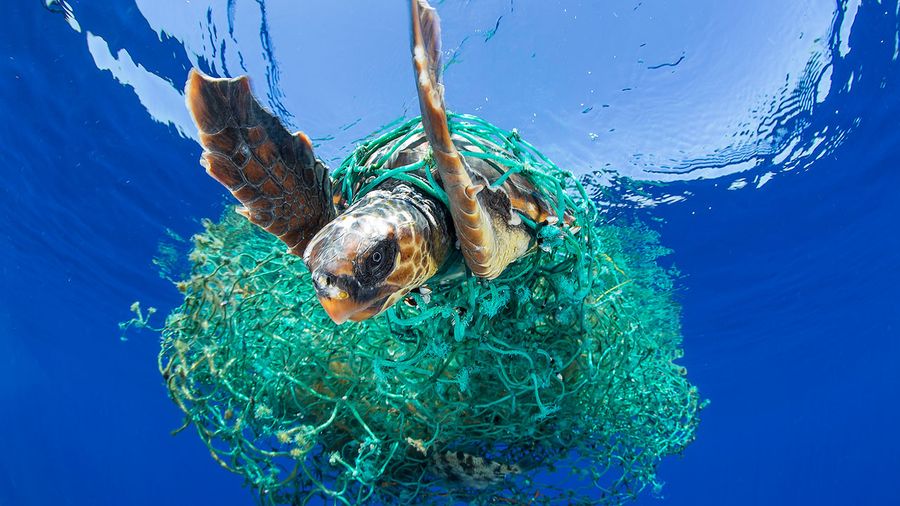Plastic pollution : The Deadly Impact of Plastic on Sea Turtles
Plastic pollution is silently killing sea turtles. Referred to as the ancient mariners of our oceans, sea turtles face the worst threat one can imagine. Fifty-two percent of these majestic creatures mistake plastic for their natural prey and have ingested it. The numbers speak volumes, emphasizing the stark reality that we must act immediately to curb the catastrophic impact of our plastic waste on these defenseless beings.
A Case of Mistaken Identity
Sea turtles have evolved to feed on jellyfish, algae, and other marine life. However, the proliferation of plastic debris in our oceans has created a deadly deception. Floating plastic bags, bottles, and fragments can easily resemble these food sources, leading to accidental ingestion. The consequences are dire, as plastic can block their digestive systems, cause internal injuries, and even lead to starvation.
Entangled in a Plastic Pollution Nightmare
The threat of plastic pollution to sea turtles is not just through ingestion. It also includes entanglement, which is a major risk. Plastic debris such as discarded fishing gear and six-pack rings can wrap around these creatures, limiting their mobility and consequently their ability to find food. Suffocation and drowning are some of the outcomes of entanglement that could lead to death without mentioning the severe injuries often caused by this.
Plastic Straws: A Small Threat with Big Consequences
The web of plastic pollution does not only threaten sea turtles by way of ingestion, also included is entanglement. Discarded fishing nets and gear, six-pack rings and other debris can wrap around the turtles, holding their fins tightly against their bodies so they cannot swim or feed. This often results in drowning or suffocation which further leads to death as the inability to swim leaves them vulnerable to predators.
Protecting Sea Turtles from Plastic Pollution: A Shared Responsibility
Protective measures of sea turtles fall under the common responsibility. Sea turtle populations have been devastated because of the entanglement in marine debris, plastic pollution and improper waste disposal are not even close to enough serious of a problem. The lack of conservation effort contributed to these problems. The low level of advocacy regarding the policies that could foster these environmental challenges is also contributing to it. There’s no doubt that sea turtles are ancient mariners; but it is their presence that maintains a delicate balance for oceans — hence they deserve protection.

